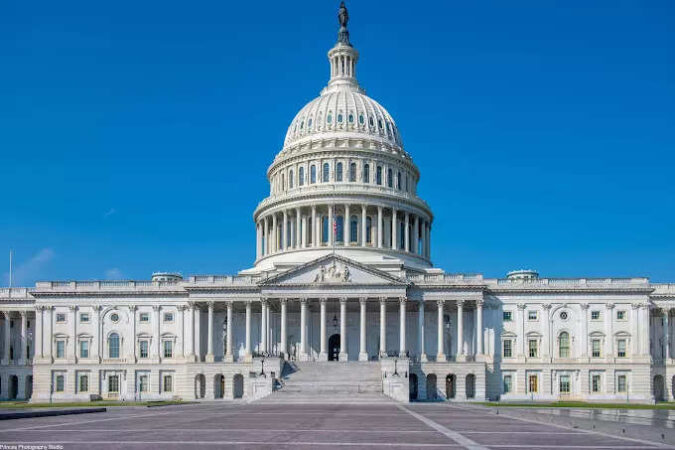WASHINGTON: US senators voted to suspend the federal debt limit on Thursday, eliminating the threat of a disastrous credit default just four days ahead of the deadline set by the Treasury.
The upper chamber of Congress rubber-stamped a bill passed a day earlier by the House of Representatives to extend the country’s borrowing authority through 2024 — staving off the next showdown until after the presidential election.
The compromise package negotiated between Biden and House Speaker Kevin McCarthy leaves neither Republicans nor Democrats fully pleased with the outcome. But the result, after weeks of hard-fought budget negotiations, shelves the volatile debt ceiling issue that risked upending the US and global economy until 2025 after the next presidential election.
Approval in the Senate on a bipartisan vote, 63-36, reflected the overwhelming House tally the day before, relying on centrists in both parties to pull the Biden-McCarthy package to passage.
Senate Majority Leader Chuck Schumer said the bill’s passage means “America can breathe a sigh of relief.”
He said, “We are avoiding default.”
Fast action was vital if Washington hoped to meet next Monday’s deadline, when Treasury has said the US will start running short of cash to pay its bills, risking a devastating default. Raising the nation’s debt limit, now $31.4 trillion, would ensure Treasury could borrow to pay already incurred US debts.
In the end, the debt ceiling showdown was a familiar high-stakes battle in Congress, a fight taken on by McCarthy and powered by a hard-right House Republican majority confronting the Democratic president with a new era of divided government in Washington.
The upper chamber of Congress rubber-stamped a bill passed a day earlier by the House of Representatives to extend the country’s borrowing authority through 2024 — staving off the next showdown until after the presidential election.
The compromise package negotiated between Biden and House Speaker Kevin McCarthy leaves neither Republicans nor Democrats fully pleased with the outcome. But the result, after weeks of hard-fought budget negotiations, shelves the volatile debt ceiling issue that risked upending the US and global economy until 2025 after the next presidential election.
Approval in the Senate on a bipartisan vote, 63-36, reflected the overwhelming House tally the day before, relying on centrists in both parties to pull the Biden-McCarthy package to passage.
Senate Majority Leader Chuck Schumer said the bill’s passage means “America can breathe a sigh of relief.”
He said, “We are avoiding default.”
Fast action was vital if Washington hoped to meet next Monday’s deadline, when Treasury has said the US will start running short of cash to pay its bills, risking a devastating default. Raising the nation’s debt limit, now $31.4 trillion, would ensure Treasury could borrow to pay already incurred US debts.
In the end, the debt ceiling showdown was a familiar high-stakes battle in Congress, a fight taken on by McCarthy and powered by a hard-right House Republican majority confronting the Democratic president with a new era of divided government in Washington.
